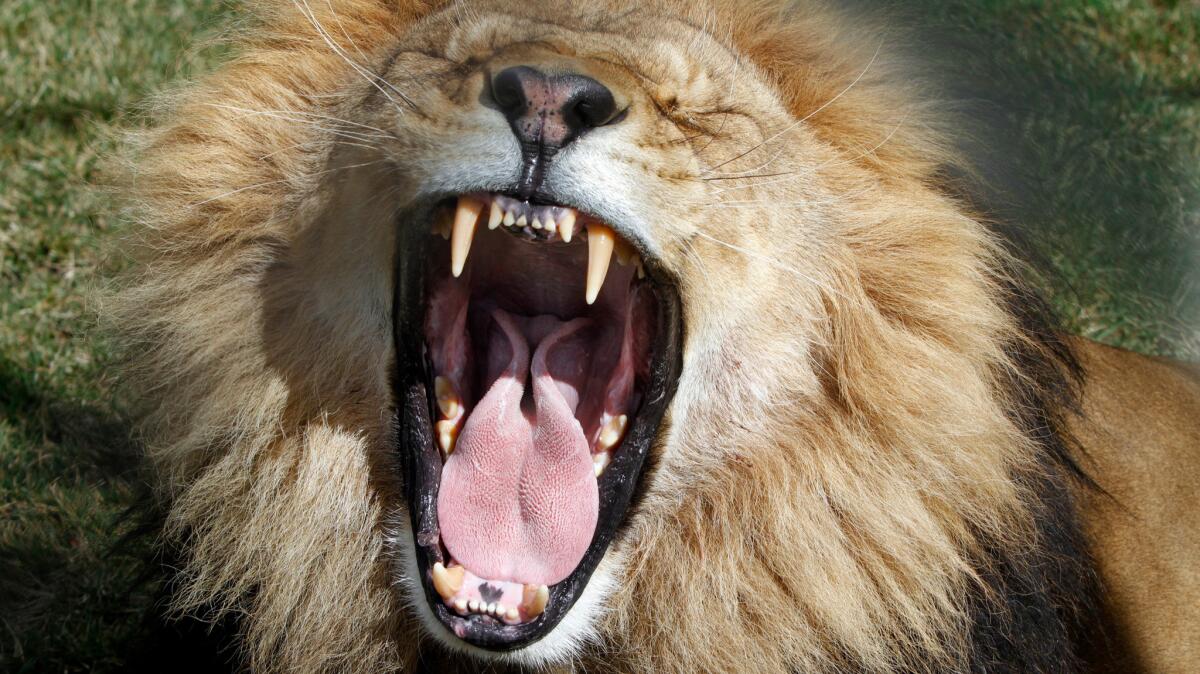The bigger an animal’s yawn, the bigger its brain, study finds

Do you know someone who spends a long time yawning? He may not be lazy he may just have a big, neuron-rich brain.
A new study published this week in Biology Letters found the amount of time it takes for a mammal to complete a yawn strongly predicts the size of the critter’s brain and number of neurons in its cortex, or gray matter.
Among vertebrates, yawning is a widespread — and poorly understood — phenomenon.
Yawning is generally viewed as a sign of sleepiness or boredom, but it plays an important physiological role in the body, said Andrew Gallup, an evolutionary psychologist and “yawnologist” at the State University of New York at Oneonta.
Indeed, yawning does for our brain what stretching does for our muscles.
When we stretch, we increase blood flow to a particular area of the body. Likewise, that gaping of the jaw — and accompanying deep breath — during a yawn brings a rush of blood to the head, delivering glucose and oxygen to our brain and neurons. It also keeps the brain cool.
“To produce the same types of effects, animals with bigger brains would need to yawn longer,” Gallup speculated.
To test this, Gallup and colleagues tapped into the mother lode of animal yawn data: YouTube.
The researchers analyzed about 200 videos, timing the yawns of 24 different species, including dogs, cats, hedgehogs, opossums, foxes, squirrels and a variety of primates, including humans. (You can download the full list, with links to yawning videos, here.)
See the most-read stories in Science this hour »
Then they compared each animal’s yawn time with readily available data on the average brain weight and number of cortical neurons for the species. The results: The longer the yawn, the bigger the brain tended to be. The strongest correlation was between yawn duration and brain complexity, as judged by the number of neurons.
Unsurprisingly, primates tended to have the longest yawns. Humans and apes — as well as some non-primates, such as elephants — tend to have more neurons and larger relative brain sizes than other animals, which is linked with higher cognitive functioning.
“What really separates humans from other animals in terms of our cognitive abilities is our neuron numbers, rather than just brain size,” Gallup said.
The study authors emphasized that neither body size nor jaw size was correlated with yawn duration. Humans are much smaller than horses, walruses and camels, but our yawns still last longer.
Gallup said the findings raise a number of new questions in the field of yawnology. He’s already in the process of exploring whether yawn duration correlates with brain size and cognitive ability in human subjects.
Then you may really be able to tell whether that buddy of yours needs more coffee or if he’s just stretching his brain.
Follow me on Twitter seangreene89 and “like” Los Angeles Times Science on Facebook.
MORE SCIENCE NEWS
The Nobel Prize in chemistry goes to 3 for ‘design and synthesis’ of molecular machines
When it comes to views on climate change, liberals and conservatives are still worlds apart




